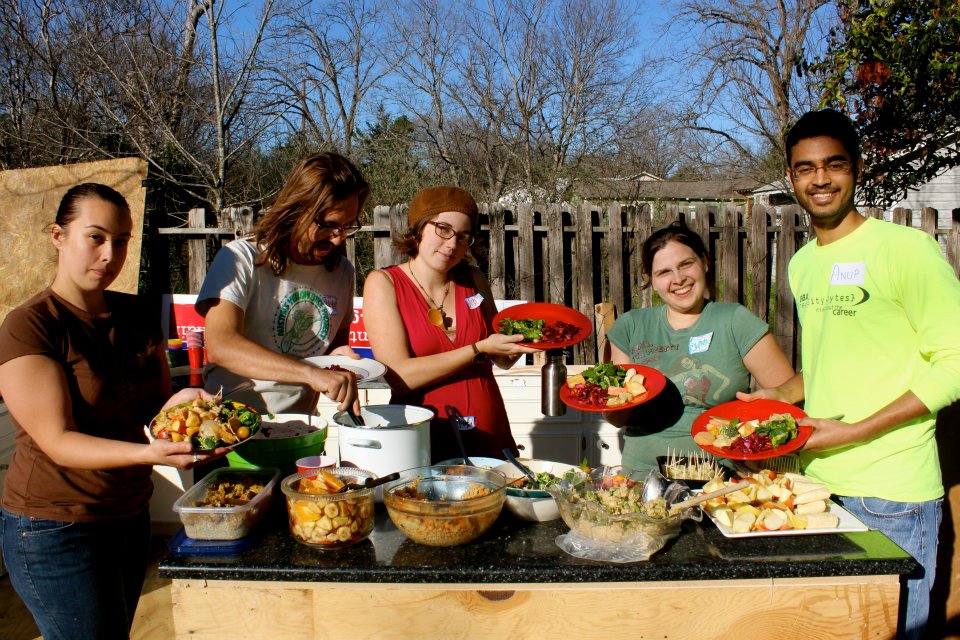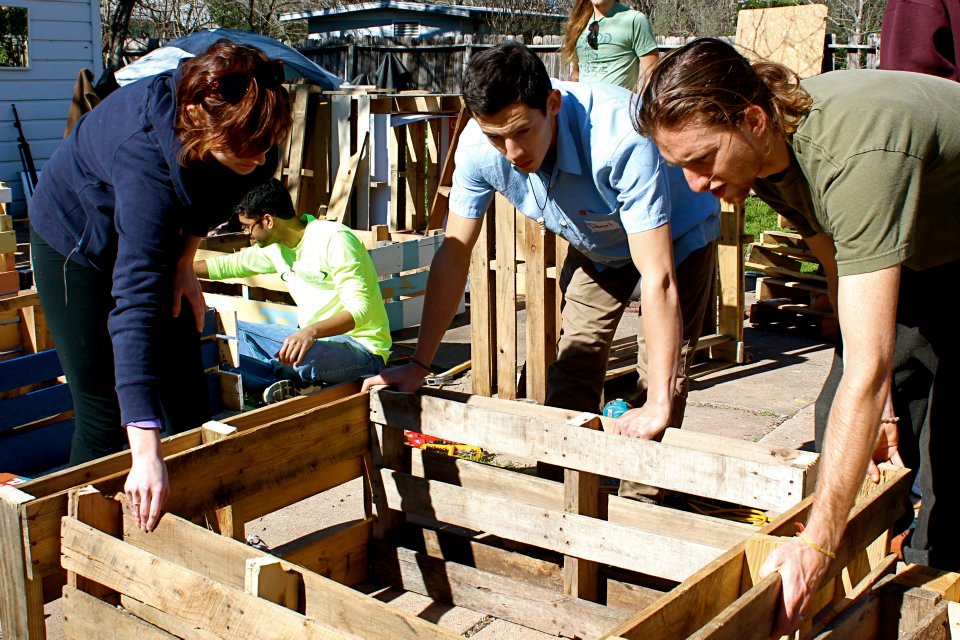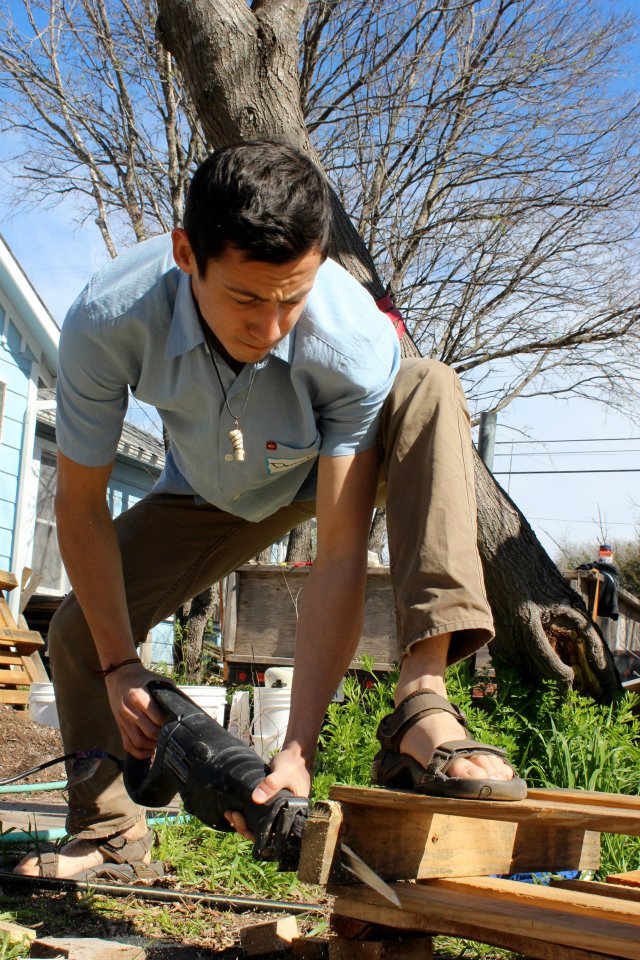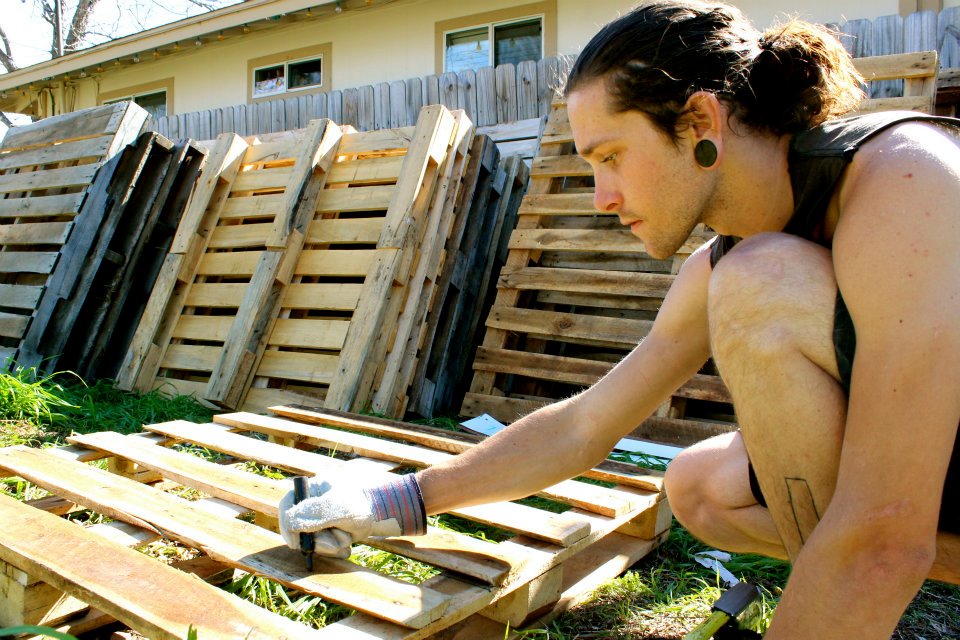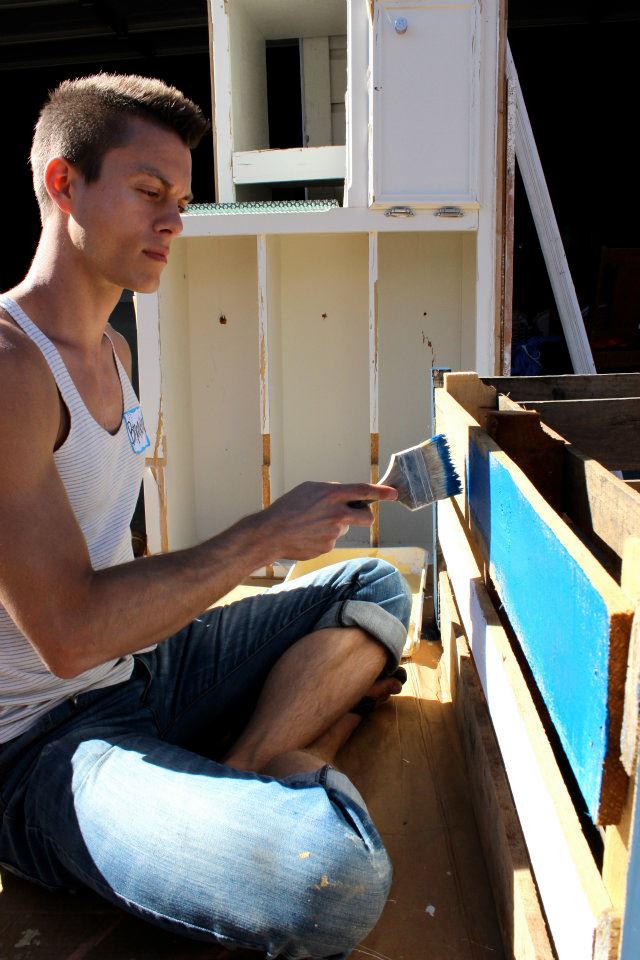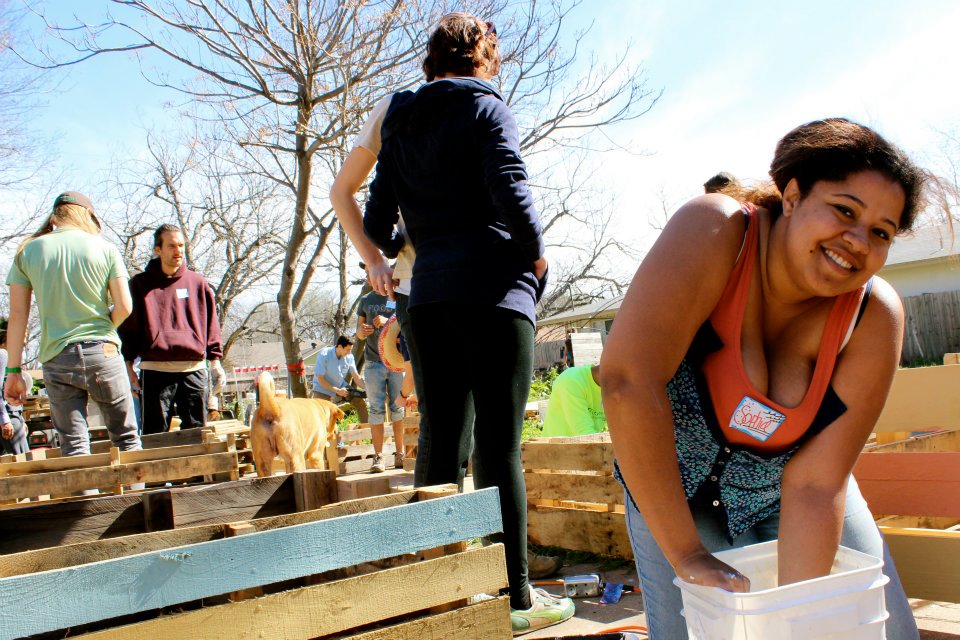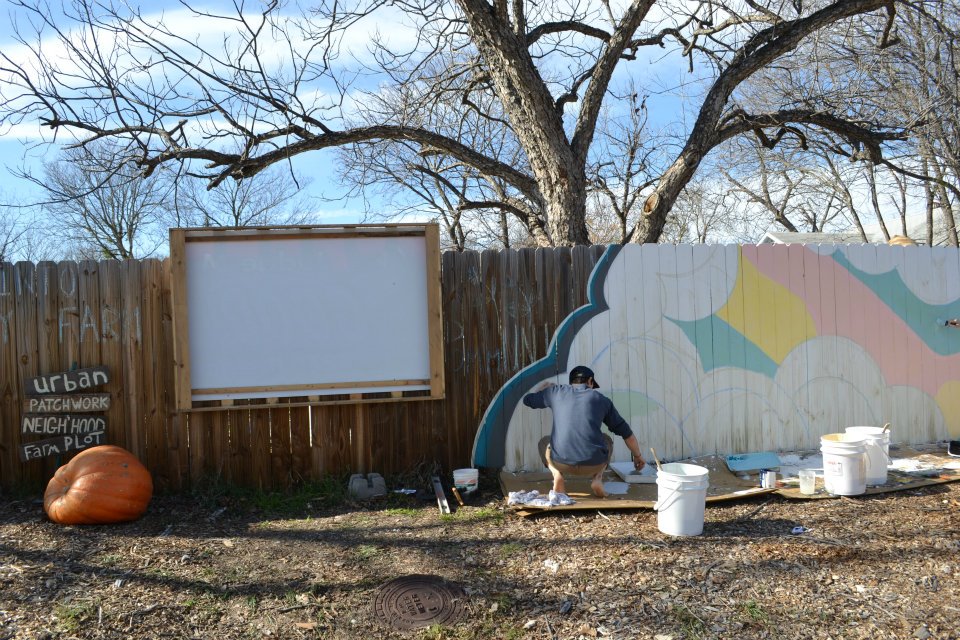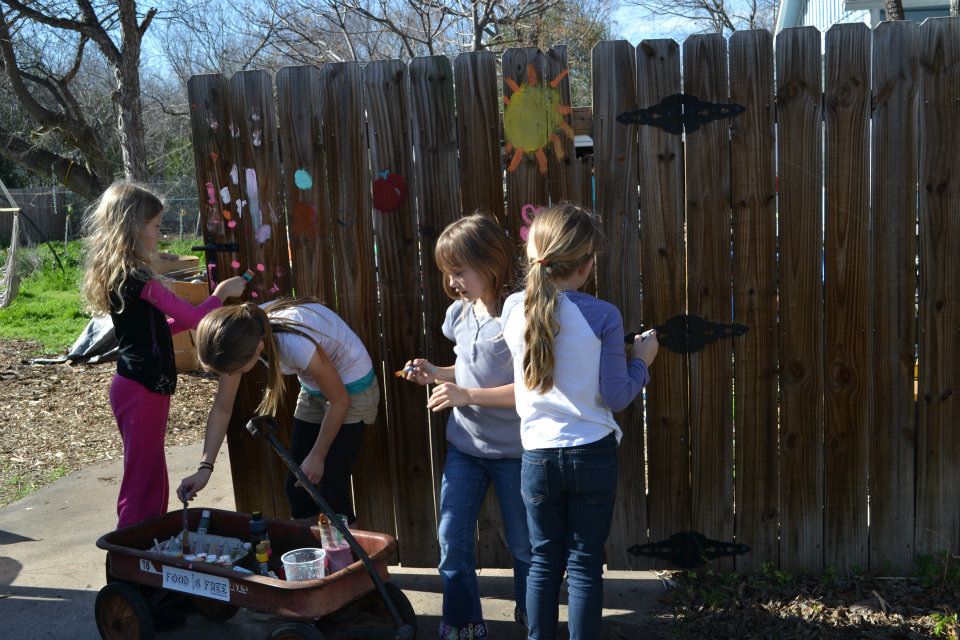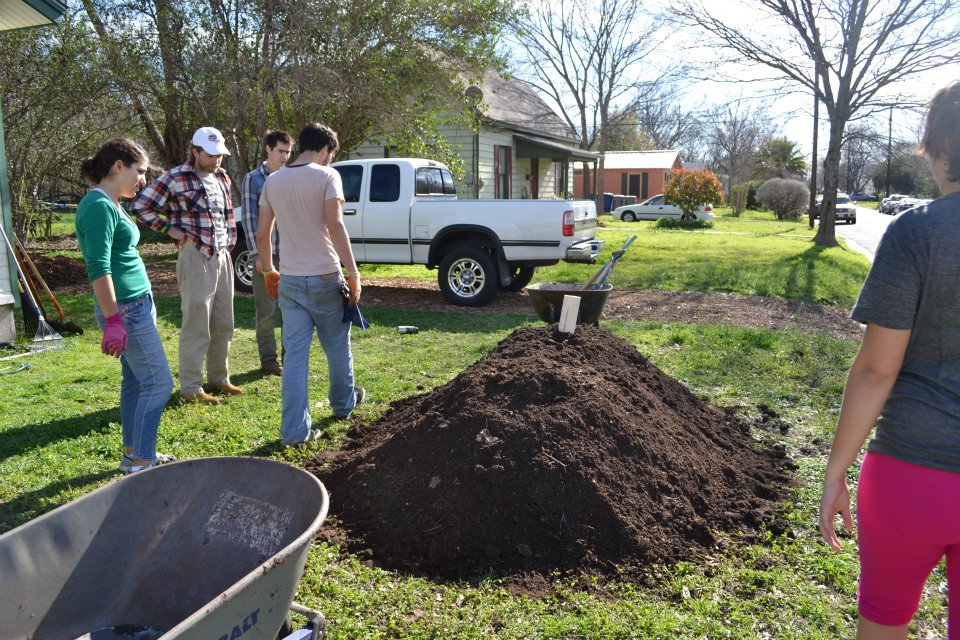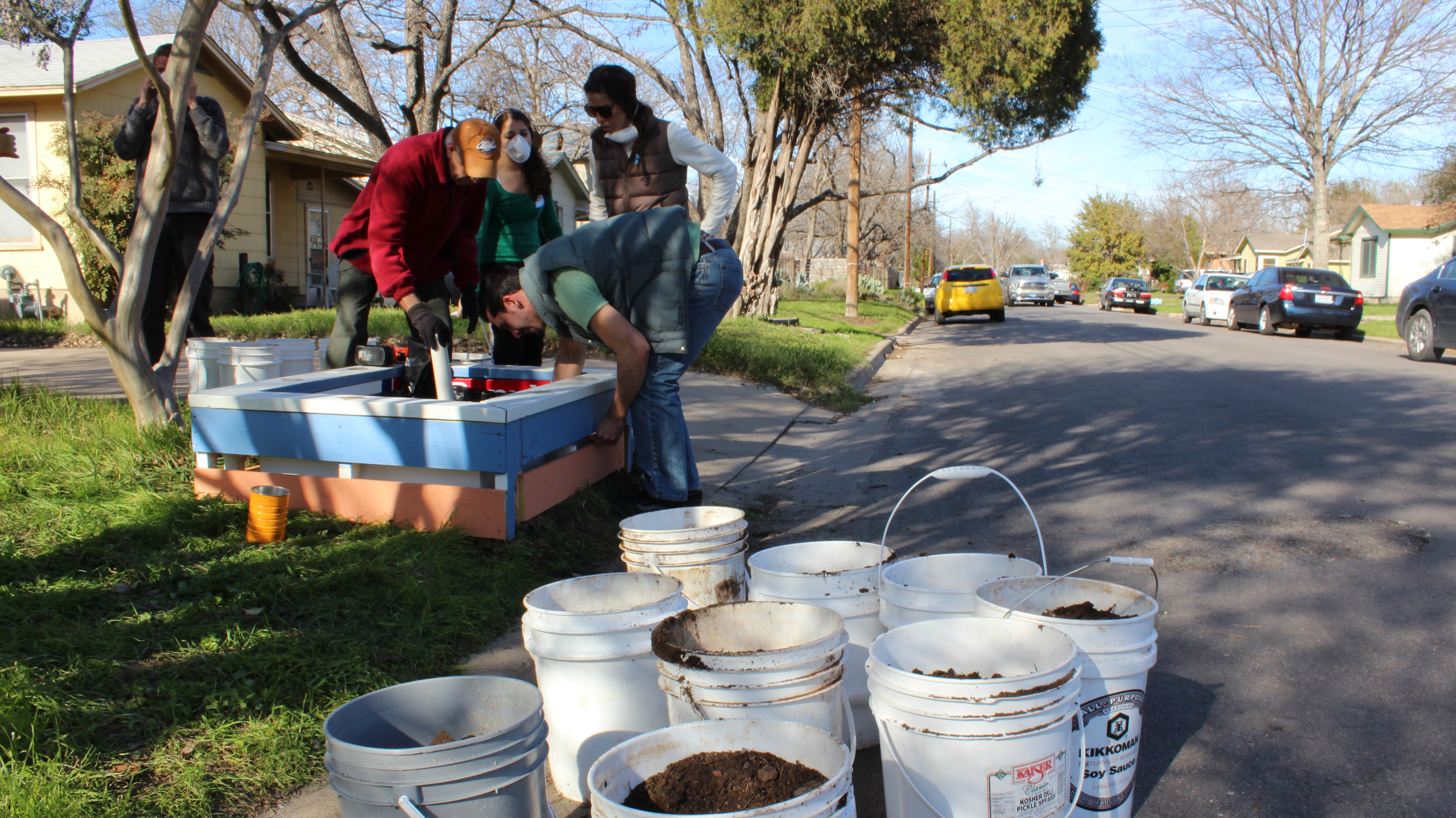-
Edible Austin features Food is Free
Posted on September 27, 2012 by foodisfreeproject in Food is Free Blog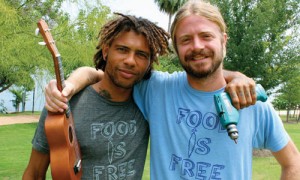
Food is Free Co-founders, Jonathan Horstman and John VanDeusen Edwards are engaging their communities, one garden and ukulele ballad at a time. (Photography By Dustin Fedako)
http://www.edibleaustin.com/content/editorial/editorial/1109?task=view
The Food is Free Project started in November 2011 with a single four-by-four-foot raised bed of winter greens in John VanDeusen Edwards’s front yard and a whiteboard and marker inviting people to post contact information if they considered access to natural, fresh food a human right. “Within two weeks, we had to erase that board multiple times because it was so full of e-mail addresses,” says Edwards, the project’s cofounder. “This was something that was really resonating with people.”
Less than one year later, Food is Free volunteers have built more than 30 front-yard beds on two neighborhood blocks (including Edwards’s own in Brentwood) and about 20 more at several elementary schools. In addition, the group has constructed demonstration gardens and held training sessions at local community centers around Austin, including 5604 Manor on the East Side.
The goal of the Food is Free Project is to build community and fix a broken food system by teaching people how to create free, low-maintenance front-yard gardens for themselves and their neighbors. Once a neighborhood block is selected from a waiting list, the group hosts an information session. Soon after, participants and other volunteers from around Austin build the gardens at no cost to the hosts, who in turn water and maintain them. When the harvest is ready, participants share what they’ve grown with their neighbors and anyone else who asks. The idea, says Edwards, is to grow relationships as well as food. “I go harvest the basil at your house, and you harvest tomatoes from my house,” he says. “Together we can make pesto and sauce.”
Edwards says the idea for the project came, in part, from hosting a plot for Urban Patchwork, a community-supported agriculture program in Austin that transforms urban yard space into organic farmland. Seeing a swarm of volunteers descend upon the Bermuda-grass-covered backyard of his rental home was a lesson in the transformative power of community.
“After that day…when we planted five hundred potatoes, and mulched a quarter-acre lot, and fertilized it all, and pickaxed twenty rows and still had time to eat lunch in six hours…I [thought], Wow. What else is possible? Why isn’t this happening on every street?”
One issue was a lack of visibility. In the case of Edwards’s own side-yard plot, a six-foot privacy fence was blocking the view. “The farm plot was behind the fence for over a year, so many neighbors that were walking by really didn’t know it was there,” he says. “It wasn’t until we put a garden in my front yard that it acted as, maybe, more of an invitation.”
Another breakthrough was learning about drought-tolerant wicking beds, which Edwards describes as self-contained, man-made aquifers that allow for less watering once plants get established. “The wicking bed was like this keystone that gave me confidence that if we did line a block in gardens, they could stay alive,” Edwards says.
To keep costs low, the group uses discarded shipping pallets, political signs, crushed glass and other reclaimed materials to build the wicking beds. Volunteers loan everything from flatbed trailers to jigsaws, and most of the plants and seeds are donations.
Edwards says the response to Food is Free has been overwhelming. At a January 2012 kickoff event, more than 100 people signed up to host gardens, and some workdays have had more volunteers than tasks. “Everyone realizes it’s time for something like this,” says cofounder Jonathan Horstmann, who previously worked on a reforestation project in Haiti. “If we want to make an impact, we have to change the way we do things in cities.”
The duo is currently working to attain nonprofit status for the project and hopes it will spread beyond Austin. But for now, they’re documenting their processes—and mistakes—as they train leaders to build wicking beds in their neighborhoods. “Never underestimate your power to inspire and affect your community around you,” Edwards says. “Even the smallest of acts can really ripple out”
—Nicole Lessin
http://www.edibleaustin.com/content/editorial/editorial/1109?task=view





